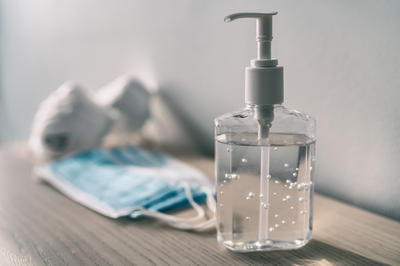
For recovering addicts, staying healthy during the COVID-19 pandemic involves more than basic safety measures.
The COVID-19 pandemic is leading to increased levels of anxiety among Americans, according to a national poll conducted by the American Psychiatric Association (APA). Specifically, 36 percent said they felt the coronavirus was having a serious impact on their mental health, while 59 percent felt it was having a serious impact on their everyday lives.
While the APA data is troubling in general, it’s especially alarming for people in addiction rehab and the people who love them due to the fact that increased stress is associated with an increased risk of relapse. Here’s a closer look at the phenomenon, along with coping tips for people in addiction rehab during these challenging times.
The Behavioral Impacts of COVID-19
The APA poll also gave a glimpse into the behavioral impacts of the coronavirus, including that 19 percent of respondents were having trouble sleeping; 8 percent were consuming more alcohol or other substances; 12 percent were experiencing increased fighting with their loved ones as a result of being stuck home together, and 24 percent were having trouble concentrating on other things because they were distracted by the pandemic.
Factor in that 57 percent of people were also concerned that COVID-19 would have a serious detrimental impact on their finances and 68 percent were worried about the lasting impact on the economy. One thing is certain amidst all this uncertainty: Pressure is mounting.
For recovering addicts, these concerns are heightened by several unique obstacles, including the fact that substance abuse negatively affects the human body, therefore, making addicts and those in recovery more vulnerable to the virus as well as to worse outcomes, according to Dr. Nora Volkow, Director of NIH’s National Institute on Drug Abuse.
The Stress Management Imperative
APA president Bruce Schwartz, MD, said in a press release, “The stress and anxiety caused by the pandemic can and is having an effect on people’s physical and mental health. During this time, it is important to do what we can to maintain self-care and manage the stress.”

The good news? Support is still available — just via different channels.
Unfortunately, many people struggling with addiction have used substances as a coping mechanism. With stress levels spiking, the risk of returning to this unhealthy form of self-medicating is also rising. Especially problematic for many addicts? Social isolation and the lack of access to critical support systems. In fact, experts say that self-isolation and boredom can be triggers to relapse into drug or alcohol abuse.
One person recovering from alcohol use disorder told Healthline of her experiences during her state’s shelter-in-place order, “This is a very trying time for everyone, but addicts are particularly at risk. We learn in recovery to reach out and gain strength and support from other addicts. Without in-person meetings, this becomes very difficult. I’ve been fantasizing about getting drunk to escape the reality we are facing.”
In addition to practicing healthy behaviors, such as mindfulness practice, engaging in enjoyable activities, self-grooming, healthy eating, and exercise, the importance of continuing to connect via social media and other online tools cannot be overstated. In addition to participating in online groups, recovering addicts can stay connected through other valuable resources, such as Connections, a free smartphone app offering e-therapy, around-the-clock clinical support, and the opportunity to message with both trained counselors and peers.
Family and friends of people in recovery should also be aware of the critical role they can play in the fight against relapse. They may be among the first to notice warning signs, such as loss of daily structure, poor self-care, elevated stress, changes in attitude, emotional reactivity, and impulsive behavior.
Help is Available During COVID-19
Lastly, it’s important to remember that while addiction treatment may be harder to access at this time, it’s not impossible. Many in house drug rehab programs around the country are still open and operating — albeit with heightened safety protocols to protect their employees and residents. This includes leading area addiction rehab center Harris House, which has offered individualized inpatient and outpatient substance abuse treatment programs in the St. Louis area for more than 50 years. Contact the professional team at Harris House to learn more today.







